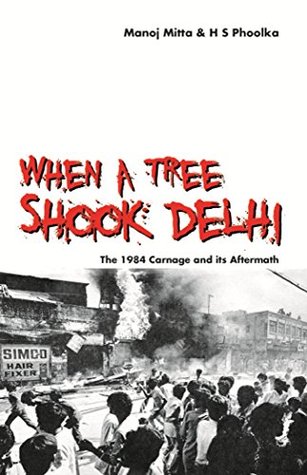Kindle Notes & Highlights
Though it said that she ‘loved India and the Indian people with a passion so sublime that it will live among us for long ages,’ the resolution expressed no regret about a section of the same Indian people being massacred in her name.
But the Sikhs living in Block 11 of Kalyanpuri in east Delhi in 1984 were an exception. For despite their poverty, a lot of them owned firearms, complete with licence and ammunition. Those Sikhs belonged to a little-known section called Sikligar. While the Sikh mainstream originated from Punjab, Sikligar Sikhs were traditional ironsmiths, tracing their roots to the Marwar region of Rajasthan. Guru Gobind Singh, the prophet who imparted a martial character to Sikhism about 300 years ago, is said to have entrusted Sikligar Sikhs with the responsibility of manufacturing and maintaining weapons
...more
Read with the police records, the affidavits filed by victims shed light on the manner in which the massacre was organized by Congress leaders and then executed with the collusion of the police.
Though history is witness to the persecution of religious figures around the world, Teg Bahadur’s sacrifice is probably without a parallel, for he is the only religious leader known to have laid down his life, not so much for espousing his religion as for upholding the freedom of others to follow their own.
Teg Bahadur’s execution was the culmination of a series of events triggered by Aurangzeb’s drive to convert all his subjects to Islam. One of the affected sections was the Kashmiri Pundits, who were in a peculiar situation. Though they were Brahmins and therefore belonged to the top layer in the caste hierarchy, Kashmiri Pundits were about the only Hindus residing in the Muslim-dominated valley of Kashmir. In a bid to escape conversion at sword-point, a deputation of Kashmiri Pundits travelled all the way to Anandpur Sahib in Punjab and requested Teg Bahadur to help them. Moved by their
...more
This highlight has been truncated due to consecutive passage length restrictions.
Ajay Kaur reiterated her allegation against Bhagat in her testimony in the court on 4 January 1995. She said that on the night of 31 October, she had seen Bhagat telling a crowd in her neighbourhood that the police would ‘not interfere for three days', and those people were therefore at liberty to ‘kill every Sikh’ and do their ‘duty to Bharat Mata’.


